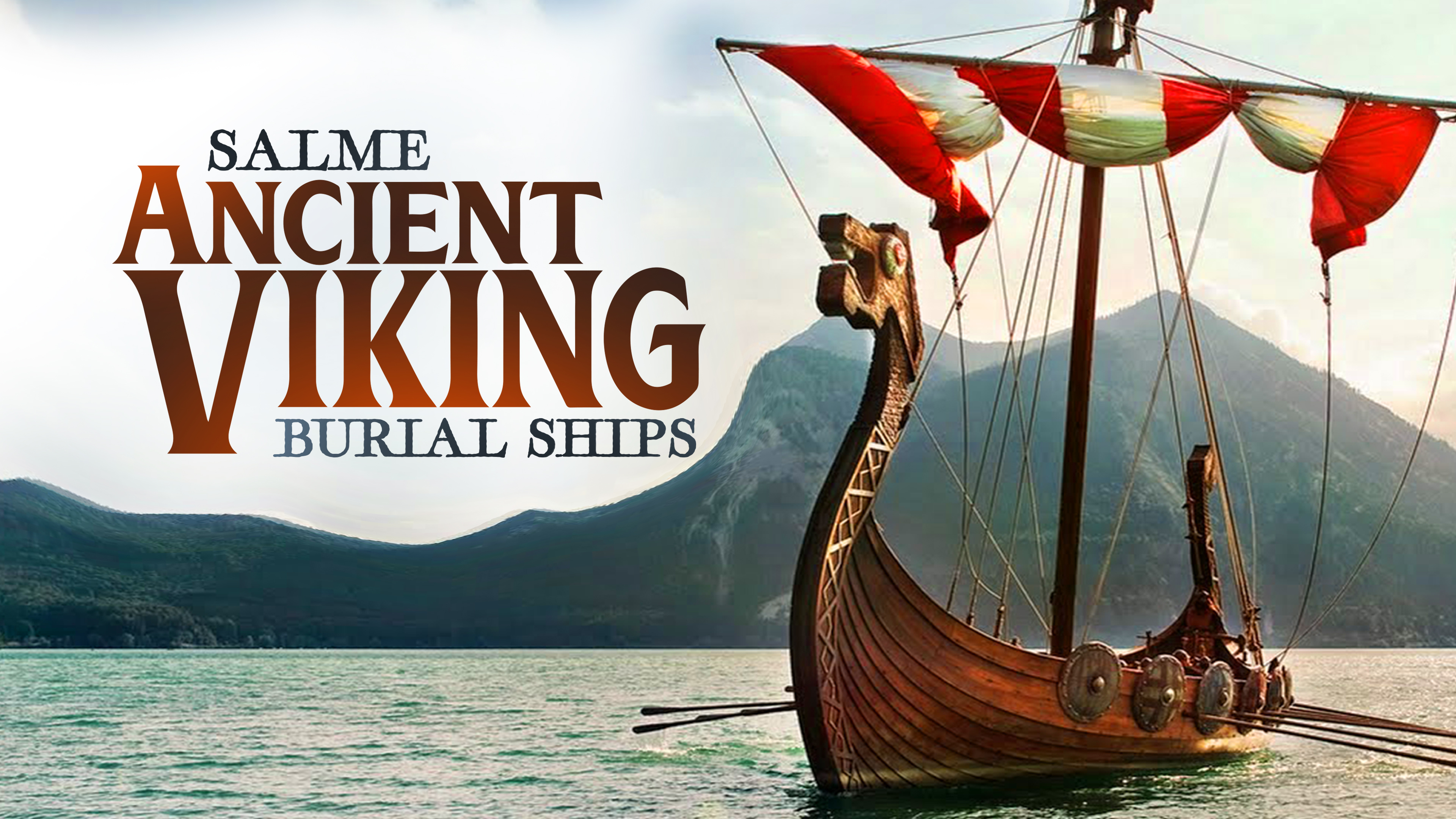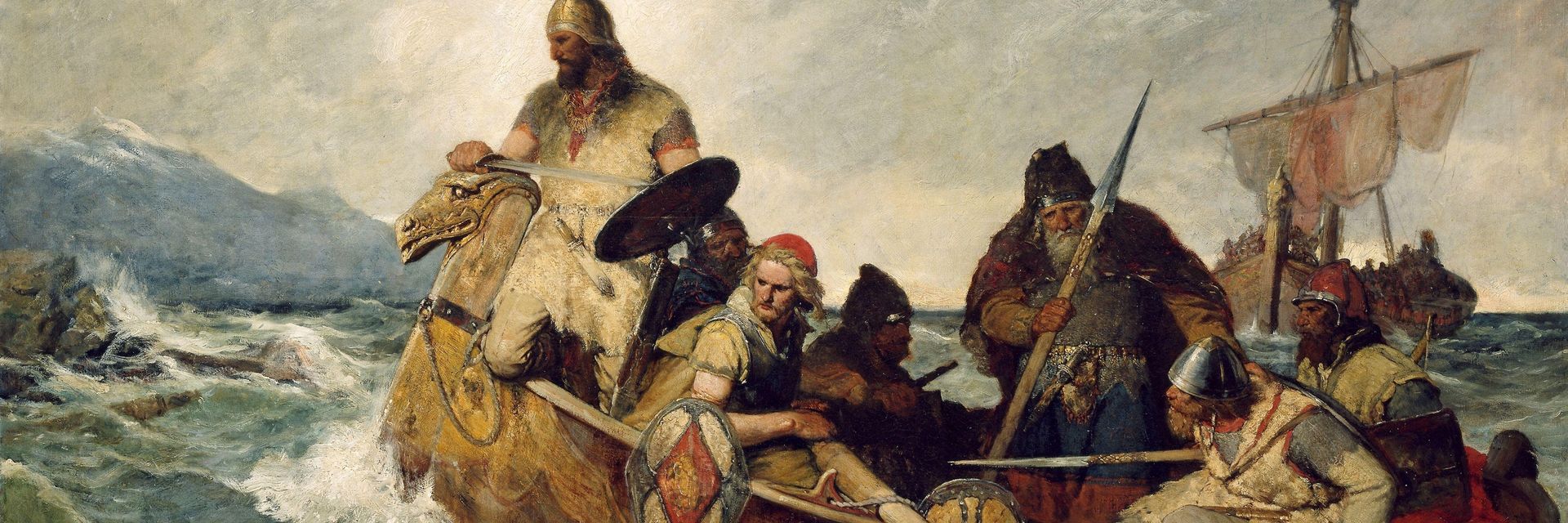On August 7, MagellanTV will release Salme: Ancient Viking Burial Ships. The engrossing miniseries follows key archaeologists as they investigate the remains of two 1300-year-old Viking vessels and reveals how the discovery fundamentally alters our understanding of Viking Europe. Let’s take a look now at the complex history of the Vikings as conquerors – and settlers – of parts of England more than a thousand years ago.
◊
For many, the word “Viking” conjures images of fire-lit coastal raids – longships slicing through fog, axes gleaming, monasteries ablaze on the English coast. It’s true enough that these uninvited visitors were fearsome warriors, but this popular version tells only half the story. Beyond the mayhem and spectacle of their earliest incursions, the Vikings were more than invaders. They became settlers, rulers, and neighbors, leaving an indelible mark on the social and cultural fabric of England.
Conquest Morphs into Settlement
The first recorded Viking raid on English soil came in 793 CE at the monastery of Lindisfarne. The attack was so brutal that medieval chroniclers believed it heralded the end times. Yet even as monasteries and towns faced the scourge of the Norsemen, another quieter, more transformative process was unfolding. Over the next century, waves of Scandinavians – primarily Danes but also Norwegians – arrived not just to plunder, but to stay.
By the mid-9th century, these Norse warriors were no longer merely seasonal raiders. They brought families, built settlements, and established political control over swaths of northern and eastern England. This vast region would become known as the Danelaw – territory where Danish law, rather than Anglo-Saxon custom, prevailed. Towns such as York (or Jorvik, as the Vikings called it) were transformed into vibrant Norse-English centers of trade and governance. Coins minted during this period bear Norse names. Archaeological digs reveal houses built in Scandinavian styles, tools and jewelry of Nordic design, and even burial customs that reflect a blending of pagan and Christian beliefs.

Premiering on August 7, this fascinating MagellanTV documentary miniseries investigates the mystery of two 1300-year-old burial ships from the Viking Age.
Law and Language Leave a Legacy
The Danelaw was not a monolithic Viking state, but rather a patchwork of petty kingdoms, fortified towns, and agricultural communities. Still, it stood in conflict with the southern Anglo-Saxon kingdoms, particularly Wessex, which remained a stronghold of English resistance. It was King Alfred the Great of Wessex who famously negotiated the boundary between the Danelaw and his own realm in the late 9th century. His efforts to defend against Norse encroachment, while also accommodating peaceful coexistence, marked a turning point in English history.
Perhaps most remarkable is the linguistic legacy left by the Vikings. The intermingling of Old Norse and Old English enriched the language with hundreds of everyday words still in use today—sky, egg, window, law, and knife, to name just a few. Place names, too, tell the story of Viking settlement: towns ending in -by (like Grimsby) or -thorpe (like Scunthorpe) often trace their roots to Norse founders.
Though the formal period of Viking rule in England waned by the mid-10th century, Norse influence remained embedded in the land and its people. Later generations of English kings – including Cnut the Great, who ruled England before becoming king of Denmark and Norway in the 11th century – would rise to power in a world shaped by this cultural interweaving.
In the end, the Viking Age in England was not just an era of fear and fire. It was also a story of adaptation, integration, and transformation. The Norsemen came with swords, but they stayed with plows, laws, and legacies, some of which endure to this day.
Ω
Title Image: The Norwegians Land in Iceland, 872, by Oscar Wergeland (Source: National Museum of Art, Architecture and Design, via Wikimedia Commons)

